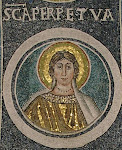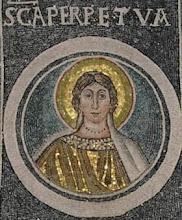I saw
Gran Torino last night, and although it was dripping in racial epithets, I experienced it as having profoundly Christian themes. Since the
review at Christianity Today doesn't go into what interested me, I've decided to post this reflection. For me, the film was about confession and forgiveness of sins, the love of one's neighbor and ultimately the laying down of one's life for one's friends. I was particularly interested in the issue of confession of sin as we have been discussing that at
Not Another Episcopal Church Blog,
Creedal Christian and now tonight at
Stand Firm in Faith.
In the film, the main character Walt is a sad and lonely man, which appears at first to be the result of his wife's death and his estrangement from both his sons and his neighbors. But as we get deeper into the film, we come to understand that Walt is carrying unresolved guilt from the time he was in the Korean War.
Walt's neighborhood has become an enclave of Hmong immigrants and for Walt, they are similar to the Koreans he fought in the war. The young priest of his parish hounds him to make a confession, as the priest had made a death bed promise to Walt's wife that he would do this for her.
A series of circumstances draws Walt into the role of father figure to the Hmong family that lives next door. Walt teaches the teenage neighbor boy, Thao, what it is to be a man, Walt style. A man must have a job, a girl and a car. A man knows how to fix things around the house and has the tools to get the job done. And Walt has guns and uses them in various situations for the defense of his property and his neighbors.
Walt never confesses to the priest what is really bothering him. In a scene in a bar, the priest thinks it might be something he did during the war when he was obeying orders. Walt says it is not what you did when you were obeying orders that haunts a man.
Later, Walt comes to the church to make a confession. The priest is painfully inept. Walt confesses to having kissed a woman during a party when his wife was in the next room and feeling responsible for his estrangement from his two sons. The priest is disappointed and we wonder if Walt would have shared more with a different priest.
So Walt does not get the genuine experience of forgiveness of sin offered by the church. He leaves having performed only an outward show of confession. What was really preying on Walt's soul was that he had shot a young Korean who was trying to surrender. We don't learn exactly how it happened, but get the sense that Walt acted in the moment of the situation, then quickly realized he had killed someone who was not a threat.
The plot builds so that Walt's method of dealing with trouble, by using his guns, is no longer tenable.
Gran Torino is another film in Eastwood's series of atonements for the revenge fantasies he stoked in his Dirty Harry days. But this film moves beyond merely showing the futility and devastation caused by revenge as in
Unforgiven and
Mystic River. In
Gran Torino, Eastwood shows another way forward, offering a vision of atonement.







